Posted
18 September 2024Here is the third article in our series exploring how AI can transform the digital publishing landscape. If you missed our earlier articles, please check these out: Unlocking the Power of LLMs for Publishers and Enhancing Search with Modern AI.
This article focuses on how modern AI can enhance editor and user experiences when dealing with images. AI opens up new possibilities for managing visual content in CMS platforms, from searching and resizing to handling logos and generating new images.
Searching Images
One of the most tedious tasks in managing a CMS is tagging images during upload. Unfortunately, this step is often overlooked, resulting in vast libraries of untagged images. The lack of proper tagging leads to significant duplication, making it difficult for editors to find the right image when needed.
Modern AI systems can alleviate this burden by automatically identifying objects, colors, text, places, and subjects within images. This advanced capability enables efficient searching across image libraries without requiring manual tagging. Editors can quickly locate the needed images, improving productivity and reducing redundancy.
Image Resizing
Websites often require images in various aspect ratios, which can be complex and time-consuming for editors. Different pages, such as listing and article pages, may need the same image in multiple sizes and ratios. Moreover, during a website redesign, new design specifications may necessitate resizing hundreds or thousands of images to fit new dimensions.
Advanced AI algorithms can automatically resize images based on the intended ratio and size, regardless of the original dimensions. This capability not only saves time but also ensures consistency across the website, allowing editors to focus on more critical tasks.
Handling Logos
Logos pose a unique challenge in image management. Resizing a logo for specific dimensions requires extending the image rather than cropping it, a task that typically involves using an image editor or even the services of a graphic designer.
Newer AI systems can identify an image as a logo and automatically generate appropriate versions for the intended dimensions. This capability streamlines the process, ensuring logos are resized correctly without compromising their visual integrity.
Image Creation
One of the most exciting developments in AI is the ability to generate images based on textual prompts. This capability can be handy for editors who need specific images to accompany their articles.
However, generating effective prompts can be tricky. AI can assist by suggesting prompts based on the article's content and context, simplifying the process of creating appropriate images. This not only enhances the visual appeal of articles but also reduces the risk of potential license violations from incorrect usage of licensed images.
It's worth noting that as of 2024, AI-generated images still have a distinctive look that reveals these to be "AI-generated." However, this technology is evolving rapidly, and we expect the quality of AI-generated images to improve significantly in the near future.
Multimedia Search
Modern AI techniques now allow images to be indexed alongside textual content, enabling multimedia search capabilities. This means that users can search for content across different media types, including text, images, audio, and video, all within a single search index.
For brands that rely heavily on visual and multimedia content, this capability can significantly enhance the user experience, making it easier for users to find the content they need, regardless of its format.
Conclusion
AI is revolutionizing how digital publishers manage and interact with images. From simplifying the search and resizing process to handling logos and generating new images, AI tools make it easier for editors to work efficiently and effectively. Furthermore, multimedia search capabilities expand how users discover content, leading to a more engaging and seamless experience.
At Kreatio, we are dedicated to helping our clients harness the power of these AI innovations to enhance their digital publishing platforms. Stay tuned for more insights in our ongoing series on AI for publishers.
Newsletter
Get updates on the latest trends, insights, and newer innovations.


